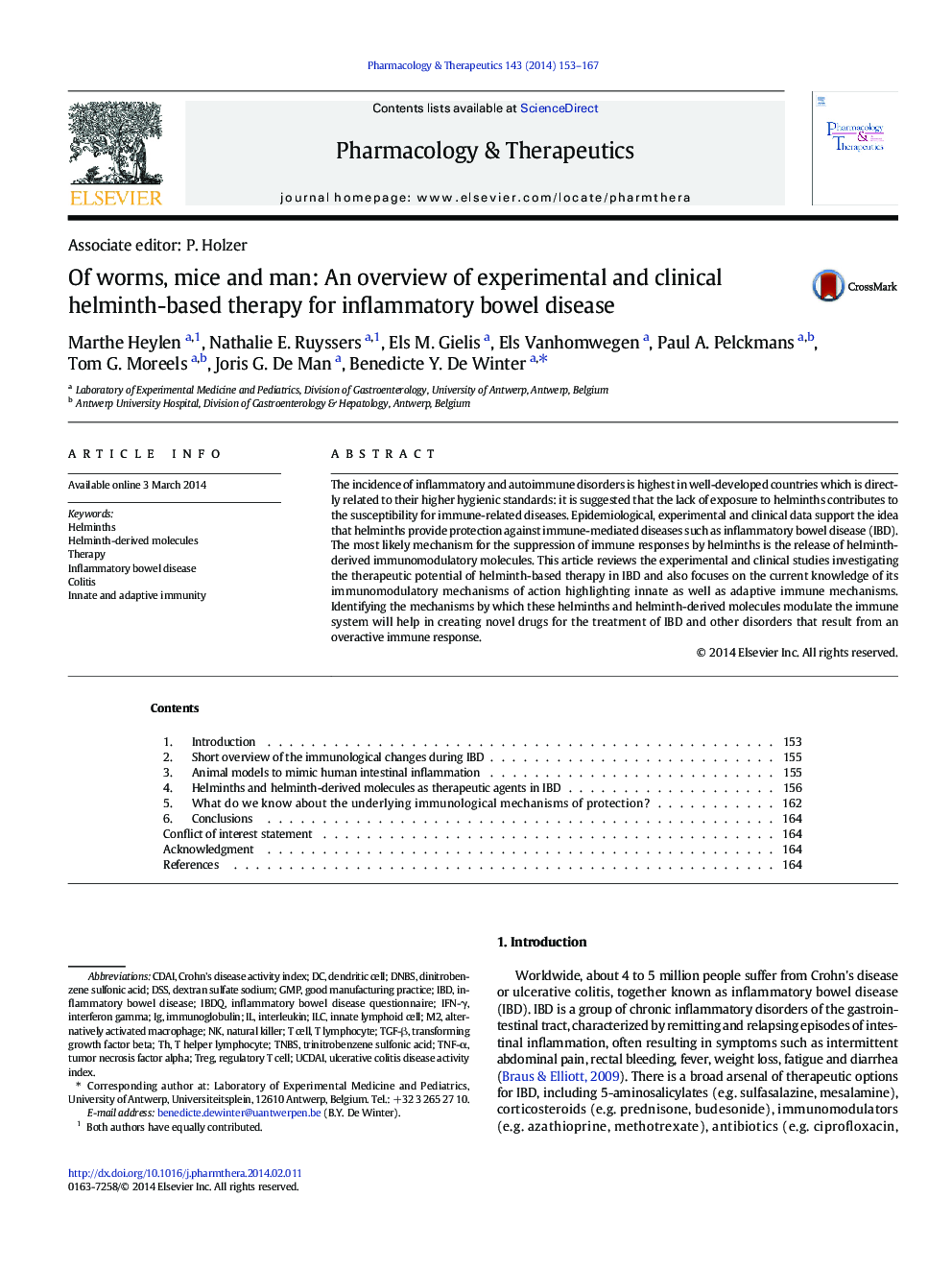| Article ID | Journal | Published Year | Pages | File Type |
|---|---|---|---|---|
| 5844145 | Pharmacology & Therapeutics | 2014 | 15 Pages |
The incidence of inflammatory and autoimmune disorders is highest in well-developed countries which is directly related to their higher hygienic standards: it is suggested that the lack of exposure to helminths contributes to the susceptibility for immune-related diseases. Epidemiological, experimental and clinical data support the idea that helminths provide protection against immune-mediated diseases such as inflammatory bowel disease (IBD). The most likely mechanism for the suppression of immune responses by helminths is the release of helminth-derived immunomodulatory molecules. This article reviews the experimental and clinical studies investigating the therapeutic potential of helminth-based therapy in IBD and also focuses on the current knowledge of its immunomodulatory mechanisms of action highlighting innate as well as adaptive immune mechanisms. Identifying the mechanisms by which these helminths and helminth-derived molecules modulate the immune system will help in creating novel drugs for the treatment of IBD and other disorders that result from an overactive immune response.
